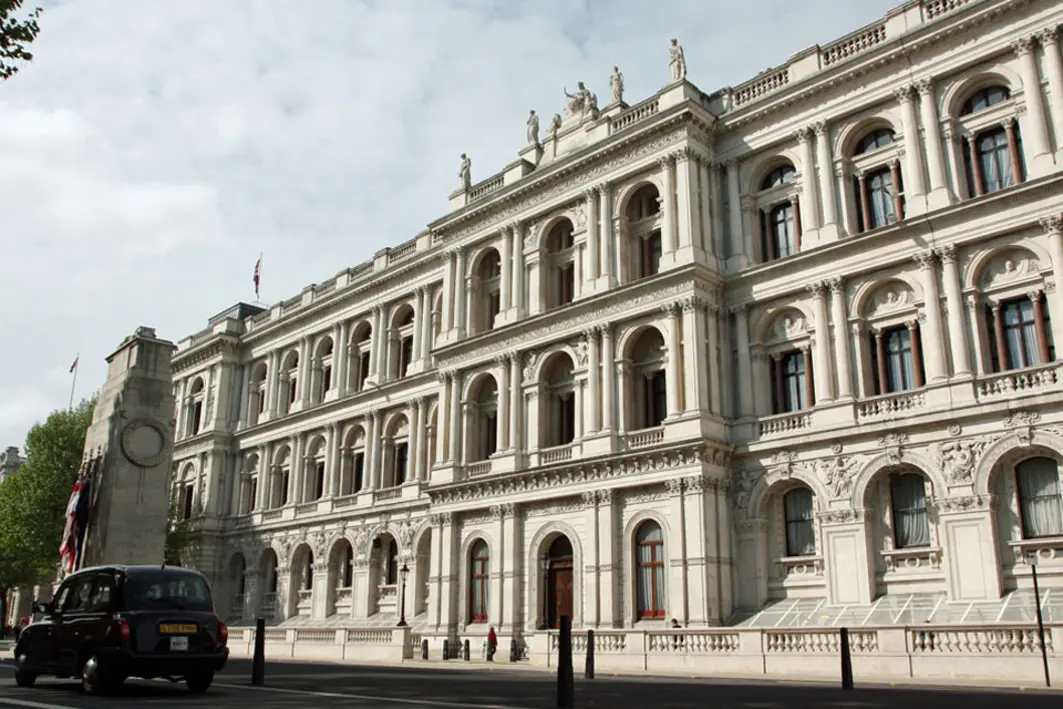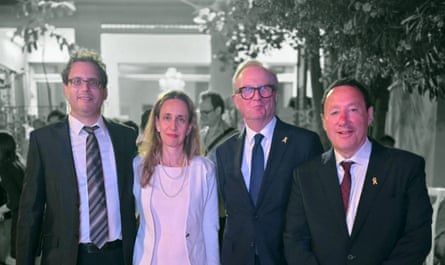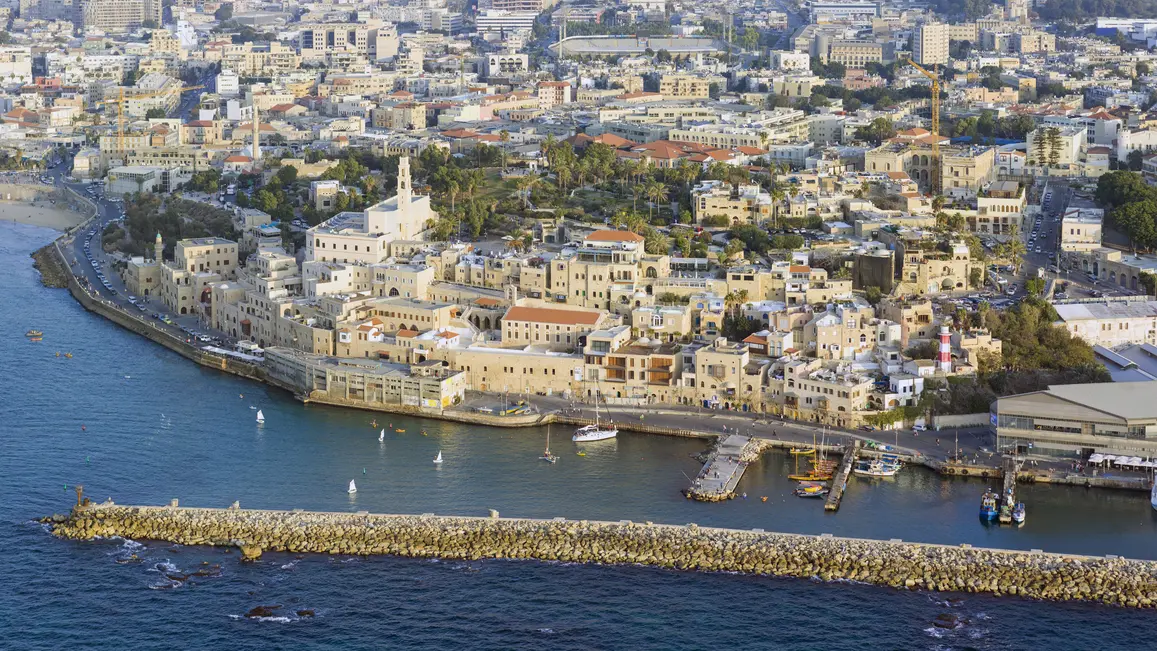UK Foreign Office Pushed for Israel Trade Visit Despite Talk Suspension

Internal documents have brought to light an unusual situation within the UK Foreign Office: staff recommended endorsing a trade mission to Israel for Lord Ian Austin, days after the then-Foreign Secretary, David Lammy, had suspended trade talks and issued a rebuke to the Israeli government. This trip by the trade envoy proceeded without explicit ministerial backing, highlighting a potential bureaucratic disconnect.

Despite previous assertions from the Foreign Office that Lord Austin would not be meeting with any Israeli government representatives, photographs from the visit clearly show him engaging with senior Israeli trade officials on at least two separate occasions. He was also present at a reception at the British embassy where the Israeli education minister, Yoav Kisch, delivered a speech.
Emails obtained through a freedom of information request reveal that Foreign Office officials actively recommended to ministers that the trip should proceed. This recommendation came despite Lammy’s decision on May 20 to halt negotiations on a free trade agreement. An official argued in a submission that cancelling the visit would “send a bad signal” to the Israeli business community, which was reportedly “agitated” by the earlier announcement.
The submission suggested that the visit would offer Austin an opportunity “to explain to Israeli civil society and business… that nothing has changed in our existing trading relationship.” However, sources close to the situation indicate that Lammy and his team never received or endorsed this submission, expressing dissatisfaction that the trip proceeded without their approval.
Meetings with a Leading Israeli Arms Company
One notable engagement during Austin’s visit was a meeting with Rafael, a prominent Israeli arms company. Rafael had acquired the UK-based Pearson Engineering in September 2022. The company is known for developing advanced defense systems, including the Iron Dome and Spike missiles. Spike missiles have been linked to incidents in Gaza, notably the IDF drone strike in April 2024 that resulted in the deaths of seven World Central Kitchen aid workers, including three British citizens.

On May 28, Austin met with a Rafael executive specializing in international business development. A briefing pack prepared by officials, released under a freedom of information request, detailed an overview of the company and an “open discussion on UK-Israel relations, policy, joint R&D and export opportunities from the UK.” While further details were redacted, the document included specific talking points for Austin regarding export licenses and trade talks, suggesting these were anticipated discussion topics.
Contradictory Official Statements
The disclosure of Austin’s meeting with Rafael executives, and the Foreign Office’s apparent push for the trip’s approval despite the suspension of trade talks, raises significant questions about the British government’s diplomatic coherence and its relationship with Israel’s defense industry. Contradictory information surrounding the visit further compounds these concerns.
Initially, the draft submission to Lammy and Falconer explicitly stated that “Lord Austin will not be meeting any representatives from the Israeli government.” Yet, a photograph shared by a senior British embassy official shows Austin in Haifa on May 26 alongside Lena Zeiger, an Israeli official handling trade policy. Zeiger was also present at a reception at the British ambassador’s residence in Tel Aviv, which Austin attended, where Education Minister Yoav Kisch spoke of a “strategic and enduring partnership.” Austin was also pictured with Yifat Alon Perel, Deputy Director of Israel’s foreign trade administration, who reportedly led negotiations on an Israel-UK free trade agreement.
The Foreign Office declined to comment on the matter, referring inquiries to the Department for Business and Trade, which also chose not to provide a statement. Lord Austin, Israel’s foreign trade administration, and Rafael have not yet responded to requests for comment, leaving many questions about the nature and approval of this controversial trade mission unanswered.



